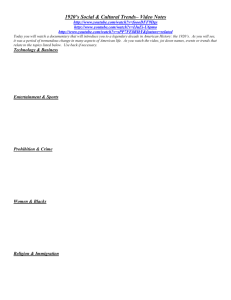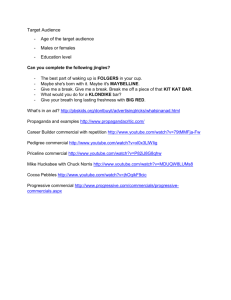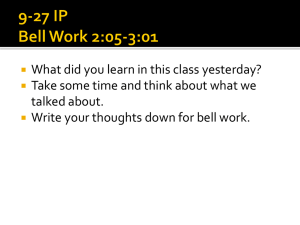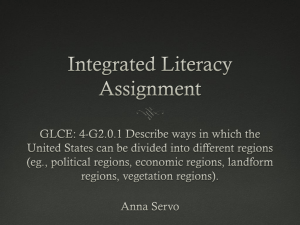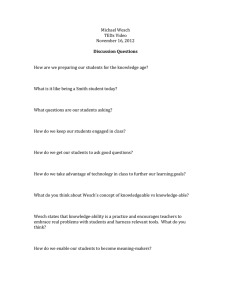Online community ECS 210 Winter 2014 - ecs210
advertisement
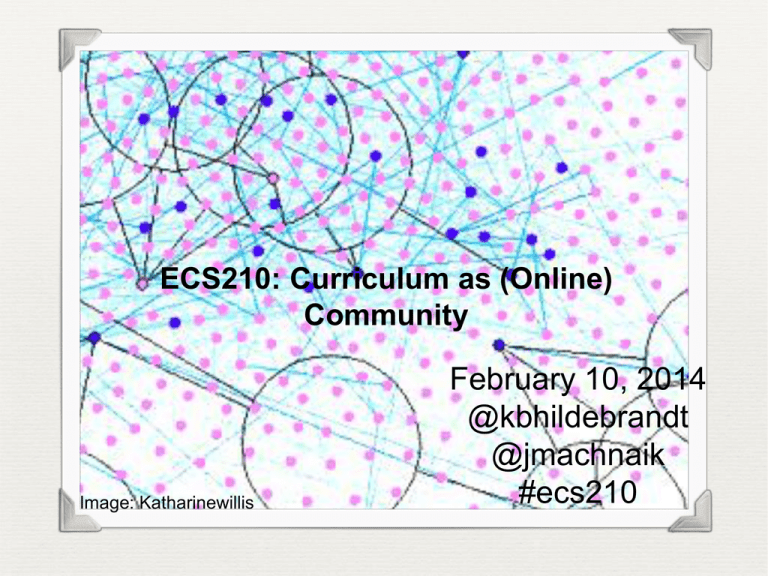
ECS210: Curriculum as (Online) Community Image: Katharinewillis February 10, 2014 @kbhildebrandt @jmachnaik #ecs210 Housekeeping ✦ Attendance ✦ Submitting assignment two ✦ Blogs - comment moderation moourl.com/moderation Getting started ✦ Think about: When you want to figure out the answer to a question, where do you turn? ✦ https://todaysmeet.com/ECS210 ✦ Today's meet page The Nature of Learning ✦ Digital Delivery ✦ Interest-Driven ✦ Skills 2.0 “What we as adults experienced in school, as educators and students, will bear little resemblance to what lies ahead.” http://blogs.kqed.org/mindshift/2011/02/three-trendsthat-will-shape-the-future-of-curriculum/ The advent of the Internet “removes many constraints of space and time [so that] some of the current social patterns that are evident in suburbia or in workplace offices will not be as much in evidence in 2020 as technology reconfigures people’s sense of presence” (Anderson and Rainie, 2010, p. 15). Anderson, J. Q., & Rainie, L. (2010a). The future of social relations. Retrieved from Pew Internet website: http://pewinternet.org/~/media//Files/Reports/2010/PIP_Future_of_Internet_ 2010_social_relations.pdf Wellman, B. (2002). Little boxes, glocalization, and networked individualism: From little boxes to social networks. Revised Papers from the Second Kyoto Workshop on Digital Cities II, Computational and Sociological Approaches. Retrieved from http://homes.chass.utoronto.ca/~wellman/publications/littleboxes/littlebox.PDF Individual -> Connected Scarcity -> Abundance MYOB Learning -> Participation School learning -> 24/7 Learning Participation on the web - viral videos http://www.youtube.com/watch?v=BpxVIwCbBK0 Participation to help others http://www.youtube.com/watch?v=3gSSNHO1dDs #Comments4kids Participating to learn - Anytime learning http://www.youtube.com/watch?v=JuFsDN8dsJU Crowdsourcing ideas Crowdsourcing ideas... Context Collapse “Look carefully at a webcam. That’s there. That’s somewhere else. That could be anybody. On the other side of that little glass lens is almost everyone you love, everyone you know, everyone you have ever heard of, and even those you have never heard of. In more specific terms, it is everyone who has or will have access to the Internet—billions of potential viewers, and your future self among them. Some have called it at once the biggest and the smallest stage—the most public space in the world, entered from the privacy of our own homes.” - Michael Wesch http://krex.kstate.edu/dspace/bitstream/handle/2097/6302/Wesch EME2009.pdf?sequence=1 Obvious to you, amazing to others http://www.youtube.com/watch?v=xcmI5SSQLmE So what does this mean for teaching and learning? “I don’t think education is about centralized instruction anymore; rather, it is the process establishing oneself as a node in a broad network of distributed creativity” (Ito, 2011, p. D9). Ito, J. (2011, December 6). In an open-source society, innovating by the seat of our pants. The New York Times, p. D9. Retrieved from http://go.galegroup.com.libproxy.uregina.ca:2048/ps/i.do?action=interpret&id=GALE|A2741 94814&v=2.1&u=ureginalib&it=r&p=ITOF&sw=w&authCount=1 Howard Rheingold - Media Labs Speech: http://www.youtube.com/watch?v=HvnpW8sdHNQ 21st century literacies NCTE http://www.ncte.org/governance/21stcenturyframework Teaching our students the skills they will need for their future careers Modeling digital literacies Collaboration Sharing knowledge with the world How we allow students to learn and express their learning... http://www.youtube.com/watch?v=YEls3tq5wIY So what can we do about it NOW? ✦ Blogging/Tweeting in ECS210 ✦ Connecting with others ✦ Building our own positive, digital identities How might the changing nature of learning and the increased prevalence of technology be related to social justice and anti-oppressive education? What is made possible/impossible by these tools and this type of learning?
